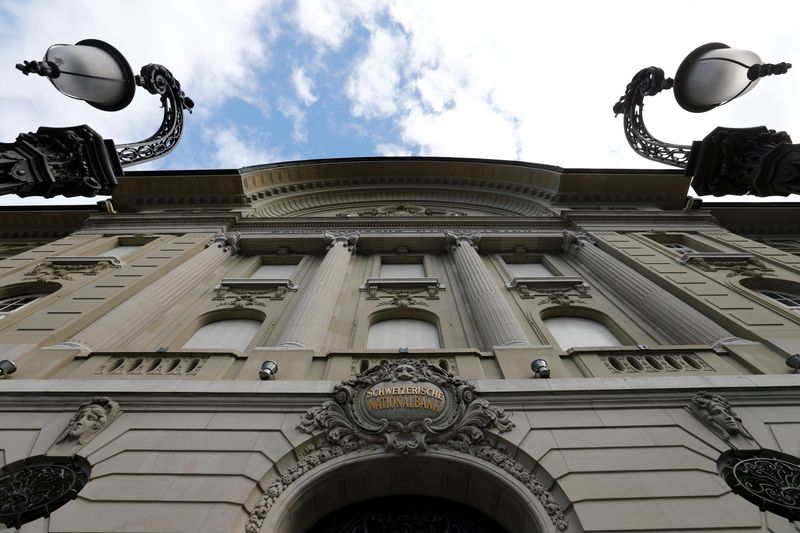Swiss National Bank intervened to support franc in Q2
2022.09.30 04:04
[ad_1]

© Reuters. FILE PHOTO: The Swiss National Bank (SNB) is pictured during a federal council meeting on the outbreak of the coronavirus disease (COVID-19) in Bern, Switzerland, March 13, 2020. Picture taken March 13, 2020. REUTERS/Denis Balibouse/File Photo
ZURICH (Reuters) -The Swiss National Bank sold 5 million Swiss francs ($5.12 million) worth of foreign currency in market interventions during the second quarter of 2022, data on Friday showed, underscoring the central bank’s shift away from fighting the currency’s strength towards tackling inflation.
The SNB had bought 5.4 billion francs worth of foreign currencies in the year-ago quarter and 5.7 billion francs worth in the first three months of 2022.
Buying foreign currencies with newly created francs was a cornerstone of SNB policy for seven years as the central bank fought to restrain the appreciation of the safe-haven currency.
The SNB feared a strong rise in the franc would damage Switzerland’s export-orientated economy and risk deflation – which runs contrary to its target of ensuring price rises of 0-2% per year.
But Swiss inflation has risen, driven by supplier bottlenecks and rising food and energy prices, to hit 3.5% in August, its highest level in 29 years.
The SNB declined to comment on the operations.
SNB Governing Board member Andrea Maechler said this week the strong franc was helping limit imported inflation.
“The National Bank has said it decided at the end of 2021 to allow the franc to appreciate, but I think the conviction for this increased rapidly in 2022 as inflation figures continued to rise,” said Elias Hafner, foreign exchange strategist at Zuercher Kantonalbank.
“The goal of the SNB is to control inflation, and a strong franc helps.”
GianLuigi Mandruzzato, an economist at EFG bank, said before the data was published he expected the SNB to not make major interventions in the rest of 2022 or next year to weaken the franc unless there was a rapid and large appreciation in the currency.
“A level of 0.90 Swiss cents versus the euro could be a pain threshold, but only if it happened in a few days. If it happened by the middle of next year, I don’t think it would be an issue for the SNB,” he said.
($1 = 0.9766 Swiss francs)
[ad_2]
Source link








